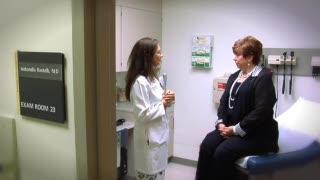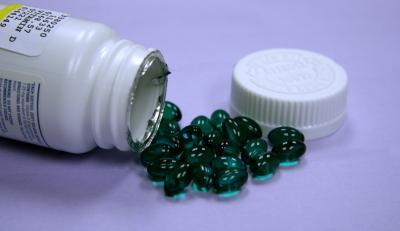"High-dose vitamin D seems to be really effective in reducing the musculoskeletal pain caused by aromatase inhibitors," Rastelli says. "Patients who get the vitamin D weekly feel better because their pain is reduced and sometimes goes away completely. This makes the drugs much more tolerable. Millions of women worldwide take aromatase inhibitor therapy, and we may have another 'tool' to help them remain on it longer."
Like anastrozole used in this study, the other two FDA-approved aromatase inhibitors, letrozole and exemestane, also cause musculoskeletal pain. Given the similar side effects, Rastelli says patients on these drugs may also benefit from high-dose vitamin D.
The vitamin used in this study is a plant-derived type called vitamin D2. Rastelli says it achieves the best results when given weekly because the body metabolizes it within seven to 10 days. Rastelli and her colleagues did not use high-dose vitamin D3, which remains in the body longer.
"This was a very carefully conducted study, and the placebo control makes the findings quite compelling," says Matthew J. Ellis, MD, PhD, the study's senior author and director of the Breast Cancer Program at the Alvin J. Siteman Cancer Center at Barnes-Jewish Hospital and Washington University School of Medicine in St. Louis. "We should follow up these findings further to determine the most efficacious and safe approach to vitamin D supplementation in our breast cancer patients."
Since vitamin D helps the body absorb calcium, too much of it can cause high levels of calcium in the urine, which may increase the risk of kidney stones. Such possible side effects emphasize the importance of tracking patients' urine calcium levels while taking high-dose vitamin D.
"It's important to monitor the patients, but overall it appears to be very safe," Rastelli says. "Because vitamin D2 is eliminated from the body so quickly, it's very hard to overdose."
In addition to relieving pain, the group wanted to examine whether vitamin D could protect against the bone loss often seen in patients taking aromatase inhibitors. The researchers measured each patient's bone density at the beginning of the study and again after six months.
Perhaps because of its role in calcium absorption, high-dose vitamin D did appear to help maintain bone density at the neck of the femur, the top of the thighbone near the hip joint. Although the result did not reach statistical significance, Rastelli calls the result promising and worth further studies.
"It's great that we have something as simple as vitamin D to help patients alleviate some of this pain," Rastelli says. "It's not toxic — it doesn't cause major side effects. And if it is actually protecting against bone loss, that's even better."

Washington University doctors have found that high-dose vitamin D helps relieve joint and muscle pain in breast cancer patients taking estrogen-lowering drugs. Known as aromatase inhibitors, the drugs are prescribed to treat breast tumors fueled by the hormone estrogen. They are less toxic than chemotherapy, but many patients experience severe musculoskeletal discomfort, including pain and stiffness in the hands, knees, hips, lower back, shoulders and feet.
(Photo Credit: Clark Bowen)

High-dose vitamin D relieves joint and muscle pain for many breast cancer patients taking estrogen-lowering drugs, a new study shows.
(Photo Credit: Michael C. Purdy)